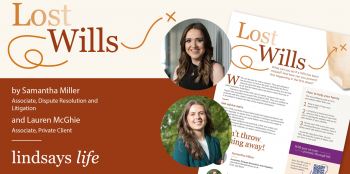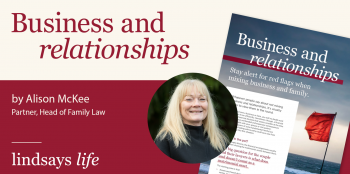The Office of National Statistics has produced some interesting statistics relating to divorce and marriage rates. In light of these statistics, it is important to bear in mind that sensible planning and preventative steps can be taken which could avoid costly litigation later if things go wrong.
The divorce rate for over 65s has doubled in the ten years to 2011, reaching 9%. At the same time the rate of cohabitation in the population generally has increased to 29.7%, making it the fastest growing type of family unit. Also for older couples cohabitation has significantly increased.
Couples cohabiting in Scotland should be very careful as the law concerning cohabitation here is very different to the position south of the border. Many people do not fully appreciate that significant claims can arise as a result of living together.
The Family Law (Scotland) Act 2006 gives couples living together certain rights if the relationship comes to an end. There is a right to claim a sum of money in compensation if one party to the relationship ends up worse off financially after separation. If someone dies with no Will, then the surviving partner can claim a share of the estate – broadly along the lines of what he or she would have had if the couple had been married.
In the case of a claim on death, this can significantly impact any children the deceased partner has from a previous marriage or relationship. The surviving partner’s claim could absorb most of the estate leaving the children with very little. A claim like this can easily be avoided simply by making a Will.
Cases involving claims on separation are problematic. The legislation and case law on it are not very clear on how claims should be valued. The court has a massive amount of discretion in how it approaches the claims and experienced lawyers struggle to give clients accurate assessments on what a claim might be worth. Many people simply have no idea these rights exist and others mistakenly believe that their rights are the same as if they were married. If one of the parties has been very financially dependent on the other, finding out there is no right of ongoing financial support can be a shock.
The best course of action if you are living together and want to avoid later disputes is to enter into a cohabitation agreement. You can either agree that there should be no claims under the legislation or you can set out what should happen financially if things go wrong. The agreement can protect each party’s financial position and safeguard assets for the family in the future.
Please contact a member of our family law team should you requite more information.








